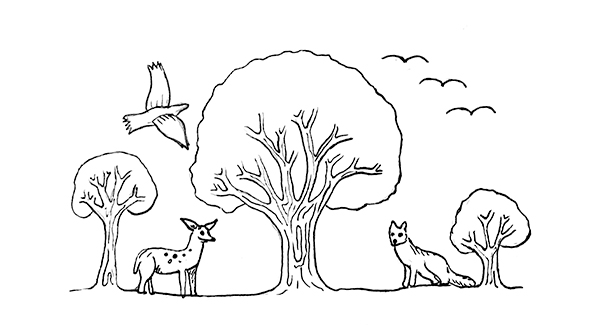Conserve Vermont’s nature, support new wildlife bill
April 4, 2019
Trapper, hunter and angler interests have long driven wildlife management decision-making through their influence on the Department of Fish and Wildlife.
But after years of trying to convince the Department to allow the public to participate, Vermont Wildlife Coalition and key sponsors have crafted H.190. This exciting bill creates a “working group” of legislators who will make recommendations to the legislature about:
1. Including the full range of wildlife values and public voices in wildlife decision-making, not just hunters, trappers and anglers
2. Bringing trapping and hunting laws and regulations in line with today’s cultural values and conservation principles
3. Creating new, sustainable funding for wildlife conservation at the Vermont DFW
Vermont’s Title 10 states that wildlife is a resource of the Vermont public and must be regulated. The DFW only regulates non-game species, but it’s their job to regulate game species such as raccoons, fish and deer meaning those that are trapped, hunted or fished.
This bill would take the decision-making out of the hands of special interests and into the hands of all Vermonters, based in sound conservation and ecological knowledge.
DFW revenues from license and permit sales will continue to decline. The six-member legislative working group created by the bill would identify collaborative, long-term solutions to ensure our state’s wildlife is protected and sustainably funded for future generations.
The department board members are all unelected. Recently three new Fish and Wildlife board members have been appointed — all hunters. Board members hold power over bag limits, seasons and other activities impacting bears, bobcats and even our dwindling moose population.
One member of the board is a taxidermist and opposed a petition for a suspension of fox hunting and trapping. Two members are trappers who have nuisance wildlife trapping businesses and opposed a petition to require minimal oversight of nuisance trapping.
Why does the state continue to marginalize wildlife watchers, rehabilitators and others who want a voice at the decision-making table?
If wildlife is a resource for all Vermonters, shouldn’t viewpoints representing all Vermonters be reflected in the makeup of the board?
The Vermont Wildlife Coalition really needs your help. Essential actions include:
1. Emailing the Fish and Wildlife Committee (and your legislators) that you support H.190
2. Sharing information about the bill on social media
3. Reaching out to people you know and ask them to do the same
Emails to the committee can be sent to Laura Bozarth at lbozarth@leg.state.vt.us. Full info about H.190 as well as the VWC mailing list can be found at the VWC website.
Sincerely,
Noah Rappel, Junior









John M. Glowa, Sr. • Apr 6, 2019 at 11:26 am
Excellent letter. There is a growing national movement to give all citizens a seat at the table of fish and wildlife management. Wildlife advocates in Vermont are at the forefront of these efforts. Society is changing. The consumptive use extremists are circling the wagons trying to hold onto their power as long as they can. The same is true here in Maine. Change is coming and they can go kicking and screaming or they can choose to work together for the betterment of all.